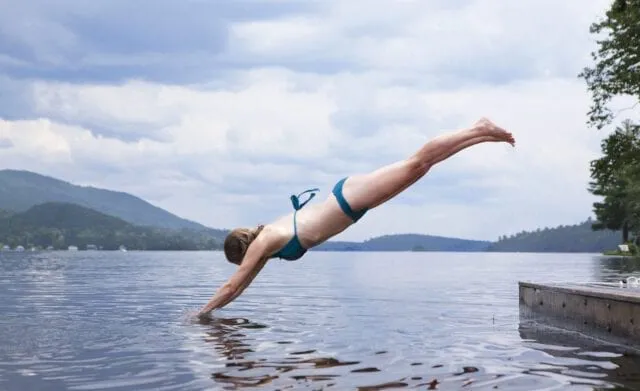The temperatures in Norway are getting higher and higher. They encourage you to spend time by the water. However, the inept use of these resources may lead to tragic incidents. What causes drowning? How to behave by the water? What to take with you? More information below.
Like us on Facebook you will always be up to date.
What to take to the water?
A trip to the beach is, contrary to appearances, quite a complicated undertaking. You should equip yourself appropriately to be prepared for any circumstance. Good to rememberthat weather conditions at the seaside may change quickly, for which you should be prepared. It may also turn out that although it is hot 50 km from the sea, a cold wind will blow over the beach. To prepare for this, you should take:
- swimsuit
- towel
- swimming goggles and flip-flops
- a change of clothes
- Headgear
- belaying equipment for beginners
- sunscreen or sunscreen oil
- water to drink and food
After arriving at the swimming pool, worth reading with the applicable regulations. Some water bodies have their own specificity, and the regulations contain guidelines that will protect us against unwanted consequences. You should also follow the rescuer's instructions water – he is responsible for our safety.
What are the causes of drowning?
Drownings are quite common, and they most often occur as a result of overly reckless behavior by the water. Some of these cases also concern, for example, bathing under the influence of alcohol or underestimating the dangers that await us in the water. Drowning is most common for the following reasons:
1. No swimming skills,
2. Bravado, overestimating your strength and swimming skills,
3. Swimming while drunk. Alcohol causes disturbances in sense, balance and orientation,
4. Underestimating the danger in water,
5. Swimming in forbidden places,
6. Head jumping into the water in an unknown place,
7. Swimming alongside ships, barges and motorboats, incl near the locks and dams,
8. Sitting on the stern of the kayak or on the side of the boat,
9. Failure to proceed in the event of a kayak or boat capsizing,
10. Reckless game of throwing others into the water and submerging swimmers,
11. Swimming in places overgrown with seaweed.
The ending word
Staying safe by the water should be based primarily on common sense. It is definitely not worth going into the sea while under under the influence of alcohol. According to police statistics, this is one of the most common causes of drowning. You should also pay attention to possible dangers related to the bathing area, e.g. a bottom covered with seaweed or potential whirlpools resulting from the shape of the shoreline. By observing the above rules will not only increase your safety, but also other people staying at the seaside at the same time.



